Top 5 AI Agent Platforms in 2025
Can you picture AI agent platforms overhauling how companies operate? Maybe that's a bit dramatic, but “transforming tasks” is still the main aim. Demand for automated tools keeps rising, so knowing how AI agent platforms work is now key for any business hoping to stay competitive. In this piece, we’ll break down the five most talked about AI agent platforms of 2025 what they offer, where they shine, and when you might want to use them. Plus, you’ll get some practical advice on picking the one that fits your own setup best.
Table of Contents
What Are AI Agent Platforms?
AI agent platforms exist to automate everyday work and talk with users, drawing on everything from language processing to machine learning. Here’s a quick example: that chatbot handling basic support so your human team can tackle trickier issues. See where this is going? It’s worth considering what kind of role these platforms might play in your own workplace down the line.
Definition and Core Features
Basically, AI agent platforms are designed to pick up patterns from data, then make decisions using what they’ve learned. They show up as everything from virtual assistants to chatbots, and even tools that predict future trends. Imagine having a digital helper that automatically sets up meetings, sends out notes, or even returns a call for you. Wouldn’t that free up your calendar?
Suggested Reading: Introduction to AI Agents
Typical Use Cases
You’ll find these platforms in all sorts of sectors retail, healthcare, finance. Companies lean on them for things like around the clock help desks, smoother workflows, and digging through piles of data. There’s the retailer who uses a chatbot so customers can get answers anytime, bumping up satisfaction while cutting down on costs. Makes you wonder: where could your company plug in an AI agent?

Evaluating AI Agent Platforms in 2025
Looking at AI agent platforms? You’ll want to check not just how well they fit into your current systems, but also how secure they are, and whether they’ll handle growth if your team doubles. User experience matters too if it’s clunky or confusing, people won’t use it. What’s on your checklist when it comes time to compare these tools?
Criteria for Selection
Here’s a loose list of what to ask vendors: How do they secure your data? Do their tools play nice with your legacy systems, or will you need workarounds? Ask about customer support it varies wildly. And maybe the most important: what’s missing from their pitch that you wish you knew?
Security and Compliance Needs
Compliance is no joke. If you’re in a field where GDPR or HIPAA comes into play, don’t skip the security fine print. Some companies roll out things like two factor login as a basic step, but others go further think encryption, regular audits, the works. What’s your approach to making sure your platform stays locked down and above board?
Scale Your Content Effortlessly
Automated article generation for unstoppable SEO growth. Wordze helps you publish faster, smarter, and more often.
Top 5 AI Agent Platforms in 2025
Here’s the roster for 2025: OpenAI GPT Agents, Google Agent Builder, Microsoft Copilot Studio, Anthropic Claude Hub, and LangChain Framework. Each one has a flavor of its own different strengths, quirks, and best fit scenarios. Which catches your eye for your next project?
OpenAI GPT Agents
OpenAI GPT Agents are known for sounding almost human in text and carrying on real back and forth conversations. You’ll see them in everything from auto generating web copy to translating documents plus, the classic chatbot. One e commerce business, for instance, saved days of work by using GPT Agents to write product blurbs that needed only a quick polish. What else could you automate with something like this?
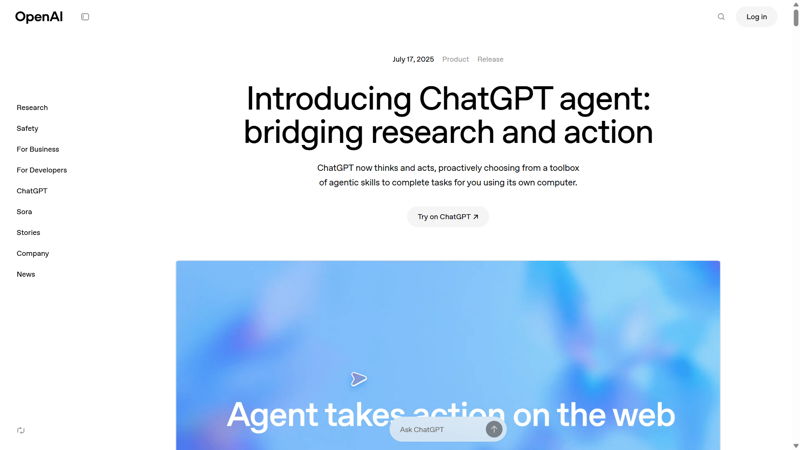
Google Agent Builder
Google Agent Builder lets you whip up custom bots or assistants without much trouble. It’s user friendly, handles big surges of traffic, and connects easily if your team is already on Google Cloud. Take a fashion retailer they used it to set up a shopping assistant that guided buyers through finding the right size, color, or deal. Could it smooth out a pinch point in your own operations?
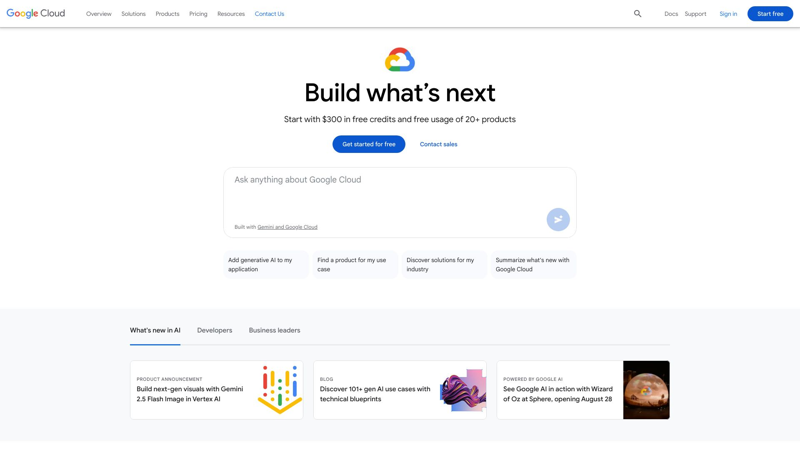
Microsoft Copilot Studio
Microsoft Copilot Studio offers advanced AI capabilities for building custom agent platforms. With its intuitive interface and robust features, it's an ideal choice for businesses looking to automate complex tasks. Take a closer look at how it can streamline your operations.
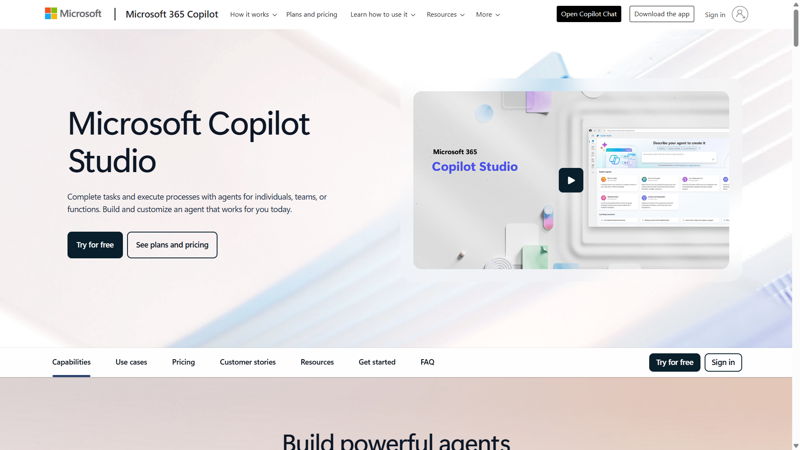
Anthropic Claude Hub
Anthropic Claude Hub provides a unique approach to AI agent development, focusing on simplicity and ease of use. Its innovative features and user-friendly design make it an excellent option for businesses seeking to quickly deploy AI-powered solutions. Explore how it can benefit your organization.
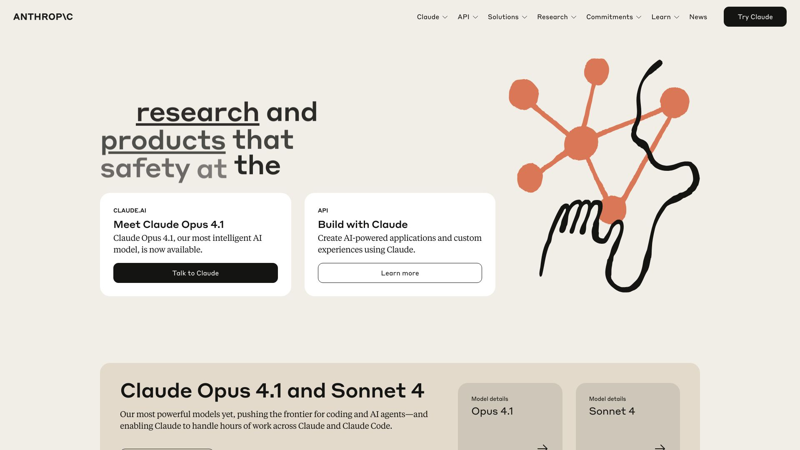
LangChain Framework
LangChain Framework is a powerful tool for building and integrating AI agent platforms. Its flexibility and customization options make it a popular choice among developers and businesses alike. Discover how it can help you create tailored AI solutions for your organization.
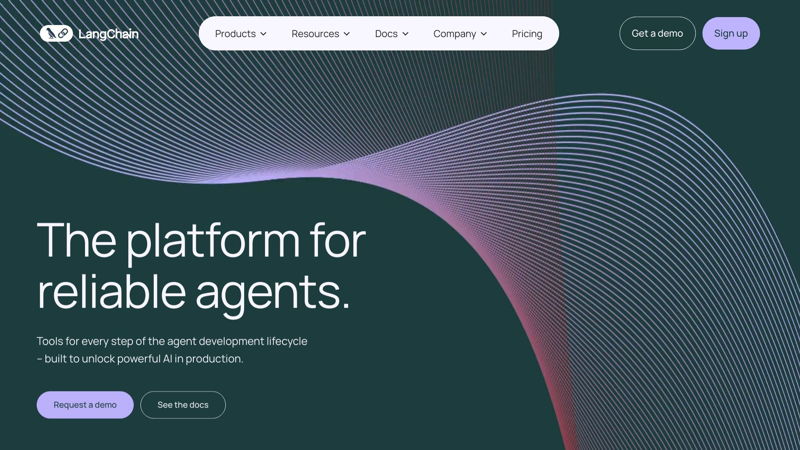
Use Cases for AI Agent Platforms
The ways companies deploy these platforms are all over the map: automating help desks, streamlining repetitive work, or making sense of big data sets. Here’s a typical scene a company lets an AI agent field the “where’s my order? ” emails, so their support folks handle only the one offs. Which task would you hand off first?
Customer Support Automation
Letting AI handle support tickets chatbots, emails, the works can change the game. Suddenly, responses are faster, customers are happier, and you may need fewer night shift staff. There’s a logistics firm that saw their support costs drop by a quarter, just by routing FAQs through an agent, yet their satisfaction scores went up. Can you see other upsides, maybe ones your competitors haven’t thought of?
- Faster replies to customer questions
- A customer experience that stands out (sometimes for the little touches)
- Agents don’t get bogged down in mindless tasks
- Support costs drop but that’s not all
- Flexibility if the business suddenly grows
- Support can feel surprisingly personal
- Multiple channels managed at once chat, email, SMS, whatever
- Rich analytics that flag trends or trouble spots
- Connects to tools you already use no need to reinvent the wheel
- Stays within the rules for data and privacy
It’s not all roses, but with these perks, you might find your whole operation runs smoother.
Key Challenges When Adopting AI Agent Platforms
Switching to AI agents isn’t always a walk in the park. Some teams get tripped up by legacy systems, others by not having enough clean data to train the AI. And there’s always someone who needs extra help getting comfortable with the new setup. Does your company have a few of these hurdles lying in wait?
Implementation Hurdles
Here’s a rough path forward: first, ask if your business is ready and willing. Next, draft a rollout plan (yes, write it down people forget). Then, keep tabs on how things are going, sometimes, a course correction is needed. And if your team has a story about missing a step, you know how valuable it is to learn from that. What would you add to this list?
How to Choose the Right AI Agent Platform
The hunt for the right platform means more than just ticking off features you’ll want to know how it fits with your company’s goals, what kinds of help and resources the vendor actually provides, and whether there’s a user community to lean on. Don’t forget to get your hands dirty with a trial run, too. Which factor would tip the scales for you?
Assessing Organizational Needs
Start by sizing up what your business truly needs what are the bottlenecks, who’ll use the platform, and does your tech stack support it? That’s how you zero in on a tool that actually helps, not just looks good on paper. Left anything out? Probably. But you’ll know best after talking it over with your team.
Conclusion
AI agent platforms are changing how work gets done. They’re making teams quicker, more productive, and sometimes more pleasant to deal with. Knowing the top five platforms for 2025, and what each brings to the table, means you can make a smarter pick for your business. The rest is up to you: ready to take that first step into AI agents, or still waiting for the right nudge?


